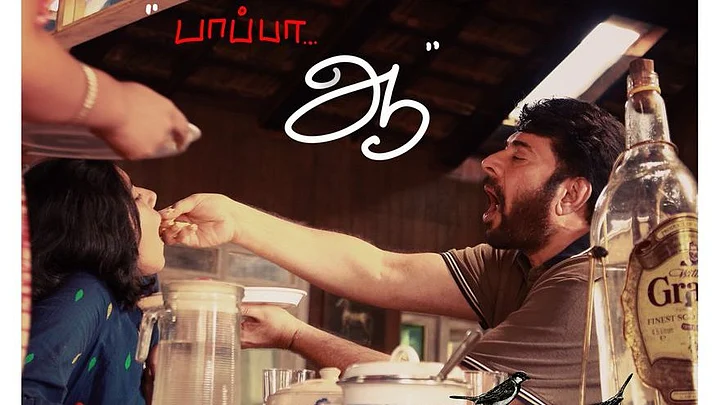Peranbu is not a film that you will fall in love with at the first scene, neither are you at the edge of your seat during intermission waiting for a killer twist reveal. You don’t even need a box of tissues to wipe off the kaajal that got smudged by tears.
Peranbu is different. The film is an attempt to portray a father-daughter relationship like never before. This Mammootty-starrer, is the story of a complicated relationship between a father and his differently-abled teenage daughter with visible symptoms typical to cerebral palsy. The father struggles to understand and explain early adulting issues of puberty and sex to his daughter, having no one else for help. Peranbu in my mind is just too real.
Director Ram has excelled himself by making a film that should be made mandatory viewing for every parent and child to understand how difficult life is for a child with special needs and her family.
A Story of Life in Nature
Peranbu is divided into multiple chapters – each one alternately describing nature in the most glowing or loathing terms – Iyarkkai Athisayamaanathu (Nature is magnificent), Iyarkkai Kodooramanathu (Nature is brutal), Iyarkkai Arputhamaanathu (Nature is full of wonders), Iyarkkai Aabathaanathu (Nature is love) – each term describes a phase of the father-daughter relationship.
Amudhavan (Mammootty) moves to a house by the lake with his daughter, Paapa (Sadhana). His wife left him for another man, and so Amudhavan is now forced to look after his daughter who he hasn’t spent much time with since she was born. Soon, nature brings them closer.
As they continue living in their happy little bubble, Amudhavan is faced with the harsh reality that Paapa is not fond of Barbie dolls anymore, but is a grownup woman waking up to her sexual desires.
The Real Story
Well, that was the plot of the story, but I believe the actual story lies in how the father struggles to seek advice, be more understanding of teenage issues as he is still grappling with all that was taboo which he was surrounded by while growing up.
But isn’t that the story of almost every Indian parent?
Even the name Paapa (baby in Tamil) is ironical, as the film keeps telling us that she is actually a girl, who is turning into a woman right in front of her father’s eyes.
When Amudhavan finds out Paapa has got her first period, he initially gets a female help but soon realises he will have to do all this on his own.
Amudhavan struggles to come to terms with his darling child staring at the poster of an intimate scene, actors kissing on a TV screen, even staring at a man on the road and grinning. To find a solution to his daughter’s sexual desires, he even goes to the extent of hiring a male escort.
The helplessnes of Amudhavan as a parent is what makes Peranbu so real.
The filmmaker doesn’t convince the audience that the climax is going to be a fairy-tale ending. He ends it on a note that is real and hopeful – just like life.
Every Character Is Flawed, Every Actor Spot-On
Sadhana, who won the National Award as a child actor in Thangameengal, is outstanding in Peranbu. Whether it is in expressing her angst, her eyes lighting up on seeing a sparrow fly into the vast sky, the love-hate relationship with her father, a feeling of being let down by mother-like figures, the pleasure of looking at an intimate poster and touching herself – Sadhana is a natural.
Mammootty is brilliant as always. Also director Ram has made Mammootty’s character relatable because he is a flawed human like the rest of us. Mammootty aces in bringing out the helplessness of a father and the nuances of a confused Indian parent
Anjali Ameer makes her debut in Peranbu and plays a transgender prostitute who dreams of having a normal life. She brings a lot of believability to her part especially when it oscillates between being subtly coy when she sees her crush Amudhavan and also has to express her unadulterated love for Paapa.
Director Ram’s way of showing the narrative of Peranbu in a slow-pace brings out the emotions beautifully, but it begins to drag a little before intermission, however the second half makes up for it.
What Peranbu essentially conveys to you is that this is the story of life and some have it harder than you think.
(At The Quint, we question everything. Play an active role in shaping our journalism by becoming a member today.)
